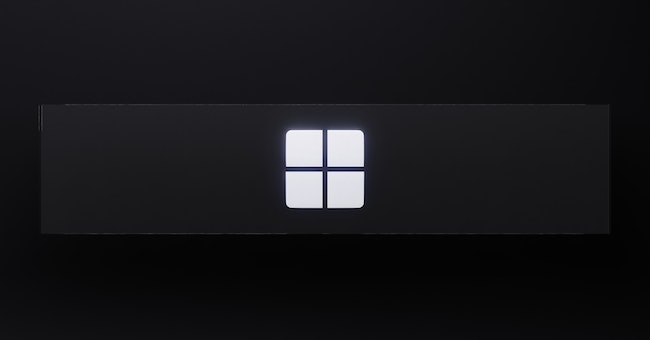LangChain: Unleashing the Power of Python for Blockchain Development

Introduction
Blockchain technology has revolutionized various industries, from finance to supply chain management. As the demand for decentralized applications (dApps) grows, developers are constantly seeking efficient and powerful programming languages to build robust blockchain solutions. Enter Python, a versatile and widely-used language known for its simplicity and readability. When combined with LangChain, a specialized platform for Python-based blockchain development, developers can unlock a whole new realm of possibilities. In this blog, we will explore the significance of Python in blockchain development and delve into the world of LangChain to understand how it harnesses Python's capabilities for building innovative decentralized applications.
The Rising Popularity of Python in Blockchain Development
Python has emerged as one of the most popular programming languages for blockchain development due to several key advantages. Let's explore the factors contributing to Python's rising popularity in the blockchain space:
a. Simplicity and Readability
Python is renowned for its clean and concise syntax, making it easy to read and understand. This simplicity accelerates the development process and allows developers to focus on building the core functionalities of their blockchain applications.
b. Extensive Library Support
Python boasts a rich ecosystem of libraries and frameworks that facilitate blockchain development. Libraries like Web3.py enable seamless interactions with Ethereum smart contracts, while Flask and Django simplify web application development for decentralized platforms.
c. Community and Documentation
Python has a large and active community of developers who actively contribute to its growth. With extensive documentation and numerous online resources, Python learners and blockchain developers can quickly find solutions to their queries and challenges.
Introducing LangChain: A Python-Focused Blockchain Development Platform
LangChain is a revolutionary platform designed to harness the full potential of Python for building blockchain applications. It enables developers to create, deploy, and manage decentralized applications using Python's simplicity and versatility. Let's explore the key features that make LangChain a game-changer in the world of blockchain development:
a. Smart Contract Development with Python
With LangChain, developers can write smart contracts using Python, a language known for its ease of use. This feature empowers a broader community of developers to participate in blockchain development, as Python's widespread adoption has already created a vast pool of skilled programmers.
b. Seamless Integration with Existing Codebases
One of the significant advantages of LangChain is its ability to integrate smoothly with existing Python projects. Developers can leverage their Python expertise and extend the functionalities of their applications into the blockchain realm without a steep learning curve.
c. Robust and Secure
LangChain ensures the security and reliability of smart contracts developed using Python. By incorporating best practices and industry standards, LangChain minimizes the risk of vulnerabilities, making it a reliable platform for building secure decentralized applications.
d. Scalability and Performance
LangChain is designed to be scalable, allowing developers to build high-performance dApps that can handle a large number of transactions. Python's ease of parallelism and multiprocessing capabilities further contribute to the platform's scalability.
Use Cases for LangChain-Powered Python dApps
LangChain opens up a plethora of possibilities for Python developers in the blockchain space. Some compelling use cases for LangChain-powered Python dApps include:
a. Supply Chain Management
Blockchain technology has shown great promise in improving supply chain transparency and traceability. Python developers can leverage LangChain to build supply chain management dApps that enable real-time tracking of goods, ensuring authenticity and reducing fraud.
b. Decentralized Finance (DeFi)
DeFi has transformed the financial landscape, providing users with decentralized alternatives to traditional financial services. LangChain enables Python developers to build DeFi applications like decentralized exchanges (DEXs), lending platforms, and yield farming protocols.
c. Non-Fungible Tokens (NFTs)
The NFT market has experienced explosive growth, creating unique opportunities for artists, musicians, and content creators. With LangChain, Python developers can create NFT marketplaces and platforms to tokenize digital assets and facilitate NFT trading.
d. Decentralized Social Networks
Privacy concerns and data breaches have driven the demand for decentralized social networks. Python developers can utilize LangChain to build social media platforms that protect user data, ensuring greater control and ownership over personal information.
Getting Started with LangChain and Python for Blockchain Development
If you're eager to embark on a journey of blockchain development using Python and LangChain, follow these steps to get started:
a. Familiarize Yourself with Python
If you are new to Python, start by learning the basics of the language. There are numerous online tutorials, documentation, and coding platforms that offer Python courses tailored to beginners.
b. Explore Blockchain Concepts
Before diving into development, understand the fundamental concepts of blockchain technology, such as distributed ledgers, consensus mechanisms, and smart contracts.
c. Set Up LangChain Environment
Visit the LangChain website and set up your development environment. Follow the provided instructions to install and configure the required dependencies.
d. Choose a Use Case
Identify a specific use case for your dApp. Whether it's DeFi, supply chain management, or NFTs, defining your use case will guide your development process.
e. Start Coding!
Begin coding your Python-based smart contracts and application logic using LangChain's tools and libraries. Remember to follow best practices and conduct thorough testing to ensure the security and functionality of your dApp.
Recommended Online Resources for LangChain
Langchain For Developers: Using OpenAI LLMs in Python
Empower yourself as a developer with this comprehensive guide to integrating Langchain with OpenAI and effectively utilizing Large Language Models (LLMs) in Python. Gain a robust understanding of Langchain's functionalities, LLM architecture, and training process. Explore the world of Langchain Models, Prompting & Parsing, Memory, Chaining, and Indexes. By the end of this course, you'll be equipped to power up your LLM applications and take a significant leap in your developer journey.
Course highlights:
Empower developers with a practical approach to integrate Langchain and OpenAI LLMs in Python.
Gain a robust understanding of Langchain functionalities, LLM architecture, and data synergy.
Explore various Langchain Models, Prompting & Parsing, Memory, Chaining, and Index concepts.
Learn to build practical Langchain Agents, including an Arxiv Summarizer Agent.
Take a significant leap in your developer journey with Langchain and OpenAI LLMs.
LangChain for LLM Application Development Short Course
Led by LangChain creator Harrison Chase and AI expert Andrew Ng, participants will explore models, prompts, and parsers, implement memory systems, develop complex workflows with chains, and leverage LLMs as reasoning agents. No extensive programming experience required, but basic Python knowledge enhances the learning experience.
Course highlights:
Acquire essential skills in utilizing LLMs for application development with LangChain.
Explore models, memories, chains, question answering, and LLMs as reasoning agents.
Develop a functional model for further integration of diffusion models in your applications.
Instructed by LangChain creator Harrison Chase and AI expert Andrew Ng.
Unlock new possibilities and create robust applications in a short time span. No extensive programming experience required!
LangChain Explained in 13 Minutes
Discover the power of LangChain in this concise and informative course. Dive into the value proposition of LangChain, explore LLM Wrappers, Prompts, Chains, Embeddings, and VectorStores. In just 13 minutes, grasp the essentials of LangChain through an example of a LangChain Agent.
Course highlights:
Concise 13-minute course on LangChain's key concepts and functionalities.
Explore LLM Wrappers, Prompts, Chains, Embeddings, and VectorStores.
Discover LangChain's value proposition and why it's a game-changer in blockchain development.
Unpack LangChain's components and learn through an example of a LangChain Agent.
Fast-paced and informative overview for learners seeking quick understanding of LangChain.
FAQs
Q: How does LangChain differ from other blockchain development platforms?
A: Unlike traditional blockchain development platforms, LangChain focuses on leveraging Python and LLMs to simplify the development process. It allows developers to integrate language models seamlessly, making it easier to create sophisticated and intelligent dApps.
Q: Is LangChain suitable for large-scale projects?
A: Yes, LangChain is scalable and can be used for both small and large-scale projects. It is equipped to handle complex interactions, making it suitable for building robust and high-performance decentralized applications.
Q: Is LangChain open-source?
A: Yes, LangChain is an open-source platform, which means developers have access to its source code and can contribute to its ongoing development and improvement.
Q: Can I integrate LangChain with existing Python projects?
A: Yes, one of the advantages of LangChain is its seamless integration with existing Python projects. Developers can extend the functionalities of their applications into the blockchain space without significant modifications.
Q: Where can I find support and documentation for LangChain?
A: For support, documentation, and tutorials, developers can visit the official LangChain website. Additionally, the platform's active community and forums provide valuable resources for troubleshooting and collaboration.
Conclusion
Python's simplicity and versatility have made it a preferred choice for developers across various domains. In the world of blockchain development, LangChain unleashes the true potential of Python, allowing developers to create innovative, secure, and scalable decentralized applications. As blockchain adoption continues to grow, LangChain empowers Python enthusiasts to participate in the blockchain revolution and build the next generation of disruptive dApps. So, if you're a Python developer eager to explore the world of blockchain, LangChain is the gateway to unlocking a whole new realm of possibilities. Embrace the power of Python and LangChain, and embark on an exciting journey of blockchain development!





